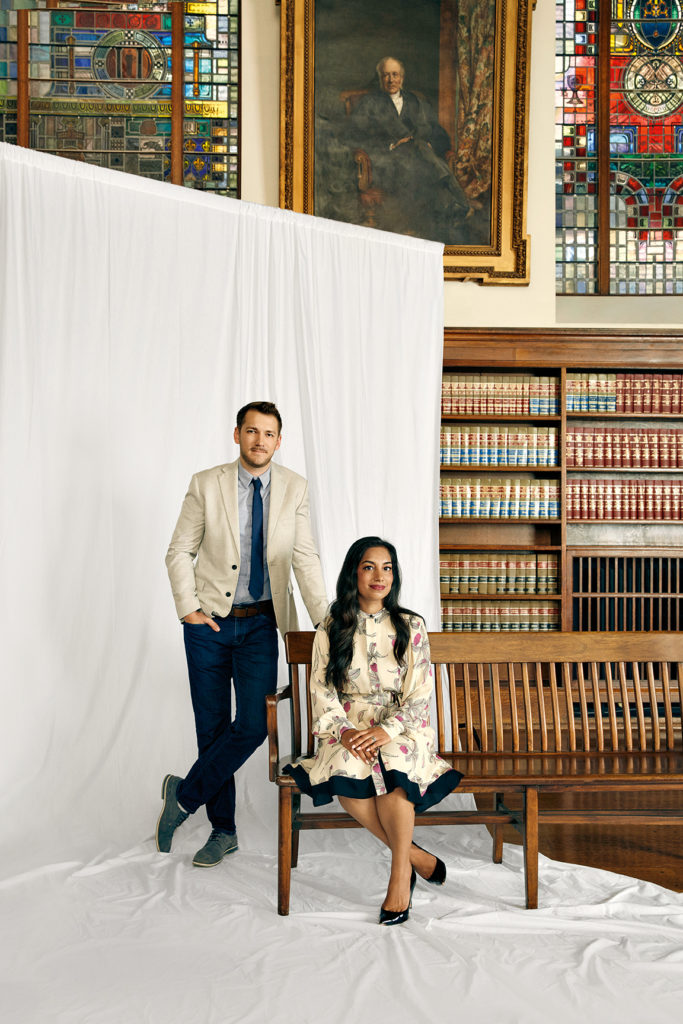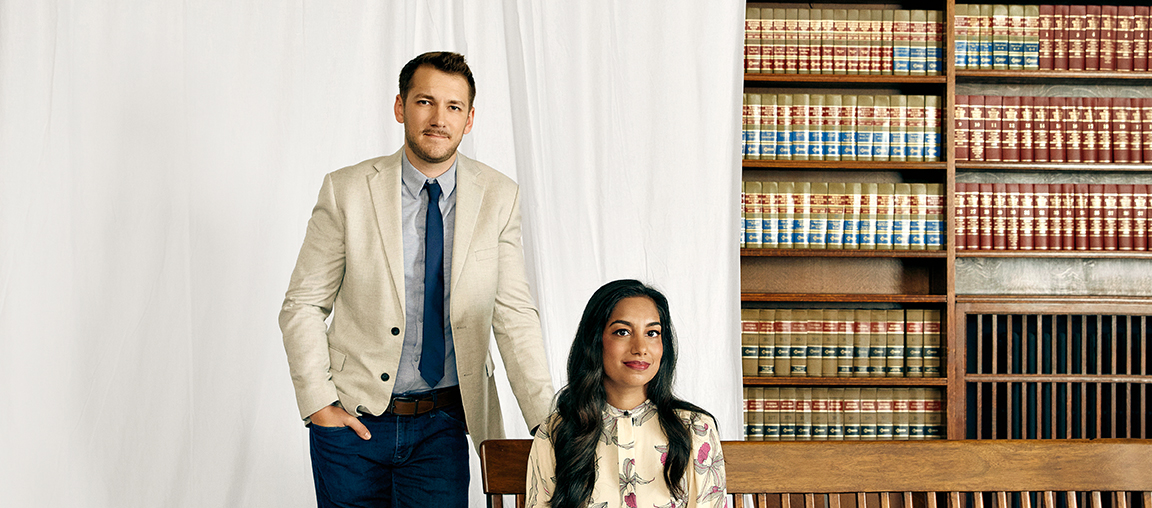In 2017, Nicholas Hill was a startup founder with a problem. As an undergraduate student at the University of Calgary, he helped launch a social-media platform, called Ivy, aimed at university students. He and his two co-founders happily split the workload when it came to developing the technology and marketing the product. But whenever he raised a potential legal issue, he says, his business partners would usually react in the same way. “They would almost without fail say, ‘Is this something we actually need to do?’” recalls Hill.
In the startup world, this is a common reaction. Most founders want to devote their limited time and money toward growing the business. Legal issues seem less urgent and too expensive to tackle. As a result, startups often draft crucial documents — supplier contracts, privacy policies, shareholder agreements — without the help of a lawyer. Months or years later, that can cause problems when, for instance, a company finds itself in a dispute over a badly written contract.
Hill was not a typical founder. He liked thinking about legal problems. Near the end of his undergrad, he applied to law school. “It began to feel almost like a calling,” he says.
In September 2020, Hill started classes at Toronto Metropolitan University’s Lincoln Alexander School of Law. By his second semester, he had come up with a novel idea: a program that would allow law students to help provide, under the supervision of an experienced lawyer, legal direction to early-stage companies. The students would benefit from real-life experience in business law. Startups, in turn, would be able to address legal issues without blowing their budget.
Hill pitched the idea to a number of startup incubators. The DMZ at Toronto Metropolitan University showed the most interest and, over the course of 2021, worked with Hill to develop and fine-tune the concept.

The winners
Nicholas Hill and Aliya Ramji, who work together on a program that connects law students with early-stage companies that need legal help, are pictured here in Convocation Hall at Osgoode Hall.
Insider info
Hanging above our winners is a portrait of Sir Thomas Galt (1815–1901), former chief justice of one of Ontario’s superior courts.
Fast-forward to January 2022. The Startup Legal Support Program officially launched at the DMZ. Sherif El Tawil, the DMZ’s senior director of programs and partnerships, had immediately appreciated the potential of Hill’s idea. “I see founders all the time who really need legal support to make sure they’re building the right foundation to grow and scale and avoid legal issues down the road,” he says. The DMZ agreed to support the project with office space and mentorship. The incubator also started to match the program with startups on its roster that needed legal help.
Aliya Ramji, a partner at McCarthy Tétrault LLP, also joined the program that January. Hill had invited her to provide the legal oversight on the project. She was well suited to the task: in May 2020, she co-founded a division of the firm, called MT>Ventures, that offers both legal and business advice to the startup community. “I was thrilled to sign on,” she says.
From the moment it launched, Hill has led the program, all while continuing to study law full-time. Throughout the program’s first year, three part-time student-volunteers, called caseworkers, helped startups with everything from shareholder agreements to NDAs. Hill served as a fourth caseworker, honing his own ability to deliver legal guidance.
While Ramji supervises the project as a whole, an associate at MT>Ventures, Eashan Karnik, works more directly with the students. So far, Ramji has been impressed with the student talent. “There’s a real interest from young, smart law students who want to play in the startup space,” she says. Ramji can imagine some students, after graduation, working with the clients in either a legal or business role.
During his time at the program, Hill worked with XpertVR, a five-year-old Niagara Falls-based company that creates virtual-reality simulations. (One of the company’s products is a VR module that helps train police on crime-scene procedures). Before meeting with Hill, Evan Sitler- Bates, the company’s CEO and co-founder, had already worked with two law firms to develop a software-licensing agreement. But he wasn’t happy with the service. “It didn’t seem like we were being taken too seriously,” he says. “We didn’t want to go back and spend more money.”
Working with Hill was different. After a few consultations and drafts of the agreement, Sitler-Bates had a document that met his unique needs and was clear enough that a customer would understand.
Looking to the future, Hill is excited to watch the program grow. (His first startup, Ivy, was recently acquired by a larger company in the education-technology sector.) “We have blown people away with what we have been able to accomplish,” he says. “We will continue to collaborate and disrupt on our journey to build this great legal innovation.”
Photography by Saty + Pratha. Hair and makeup by Aniya Nandy. Shot on location at Osgoode Hall.


